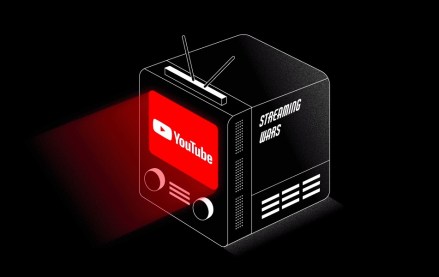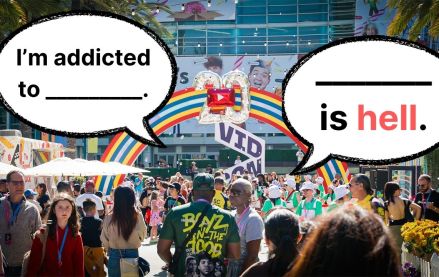Facebook might be looking to mend relationships with media companies concerned over its role in the spread of fake news, but it also wants to reassure them that it has their business concerns top of mind, too.
On Friday, Feb. 17, Facebook invited dozens of media companies to its offices in New York to talk about the company’s content and product roadmap for 2017. Guests included executives from TV networks like ABC and NBC, news publishers such as The New York Times and The Washington Post, and digital media companies like BuzzFeed, Refinery29 and Vice. More than a dozen Facebook executives — including Campbell Brown (head of news partnerships), Adam Mosseri (vp of product management) and Fidji Simo (vp of product) — were also in attendance. The event was part of Facebook’s ongoing outreach to media companies as it looks to filter out fake news on the platform and help publishers generate video-related revenue.
“As we said when we announced the Facebook Journalism Project, we’re committed to working more closely with the industry on developing products for journalism,” said a Facebook spokesperson. “Last week, our product and partnerships teams held several roundtables in New York and London with 100-plus publishers and learned a lot from them. We’re excited to continue this deep collaboration.”
Video was a major topic of conversation at last Friday’s event, with an entire “section” dedicated to topics such as video advertising, the placement of video within the Facebook app and even Facebook’s plans to fund original shows, according to attendees. (Other sections were devoted to issues surrounding traditional publishing and Instant Articles as well as local news.)
Facebook outlined its original content plans at the event. Led by CollegeHumor co-founder Ricky Van Veen, Facebook is said to be looking for scripted and unscripted serialized shows focusing on entertainment and sports — and it’s looking to put these shows inside the video tab on its mobile app as well as its upcoming connected TV app.
Just as live video was a top priority last year, longer content is this year’s big Facebook project. The company wants to increase time spent on its platform. As such, Facebook executives painted a picture where short-form videos would continue to live on the news feed while at the same time users could find longer content in the tab and the TV app. This includes both original shows funded by Facebook as well as longer digital videos media companies are creating on their own.
“They want to change how user behavior works in that tab,” said an attendee. “They’re not expecting people to open that tab and see the same content they see in the news feed. They want to make [the tab] a real competitor to YouTube, where you can put a five- to 15-minute video and people will stay to watch.”
Facebook announced yesterday that it plans to expand mid-roll advertising within live videos to more users. Sources said the ad breaks, which so far have been available to social media stars like Casey Neistat, will be available to publishers between now and the end of June. Initially, the monetization tool will still be restricted to page owners that go live using their phones, but Facebook is expected to eventually open up the capability to publishers using the Facebook Live API to produce live video.
In Facebook’s announcement, the company said the ad breaks would also be restricted to publishers and social stars with at least 2,000 followers on Facebook, as well as live videos that have a minimum of 300 concurrent viewers. Other requirements include a minimum of four minutes of content before the first ad break, five minutes of content between each subsequent break and a maximum of 20 seconds per break.
Facebook is also testing ad breaks within on-demand video, which will be limited to a handful of media partners for being rolled out to other companies. Here, publishers will get to decide where in the video they want to place the ad, though it can’t be in the first 20 or last 30 seconds of the video, sources said.
“I’m skeptical about how much revenue this will bring in,” said one attendee, referring to the Facebook Live monetization plans. “But I suppose it’s better than nothing.”
Still, attendees said these are important steps for Facebook, which has yet to develop a sustainable ad model for media partners.
“[Facebook] knows Suggested Videos was a huge disappointment for all of us,” said one video executive in attendance. “None of us made any significant money.”
Facebook is expected to host more of these sessions as it works with media companies to filter out fake news and build revenue streams. Last Friday’s event came nearly a month after Facebook’s head of news partnerships, Campbell Brown, started hosting off-the-record meetings with reporters and executives in New York, according to a BuzzFeed News report.
More in Future of TV

Future of TV Briefing: A preview of Digiday’s CTV Advertising Strategies event
This week’s Future of TV Briefing previews next week’s CTV Advertising Strategies event that I’ll be hosting with top brand and agency executives in New York City.

Future of TV Briefing: TV is YouTube’s top screen — except when counting views and among Gen Z viewers
This week’s Future of TV Briefing looks at how mobile still accounts for an overwhelming majority of YouTube video views and why some Gen Z viewers aren’t tuning into YouTube on TV screens.

YouTube vs. TikTok vs. Instagram: What Gen Z really watches in 2025
At VidCon 2025, more than a dozen Gen Z attendees weighed in on the video apps they are most and least likely to watch.





